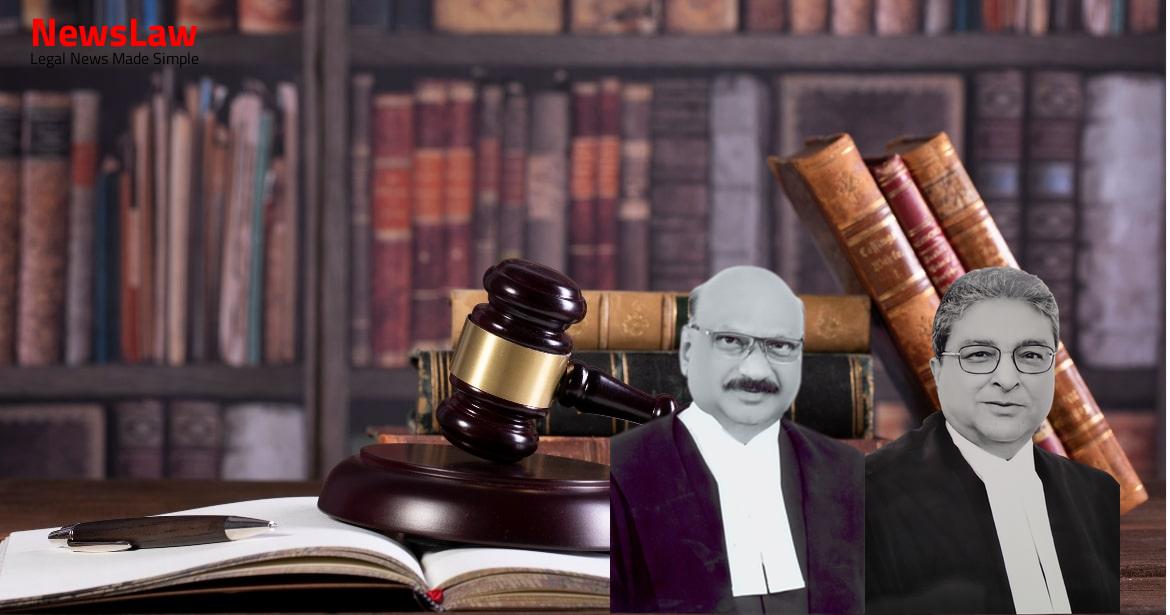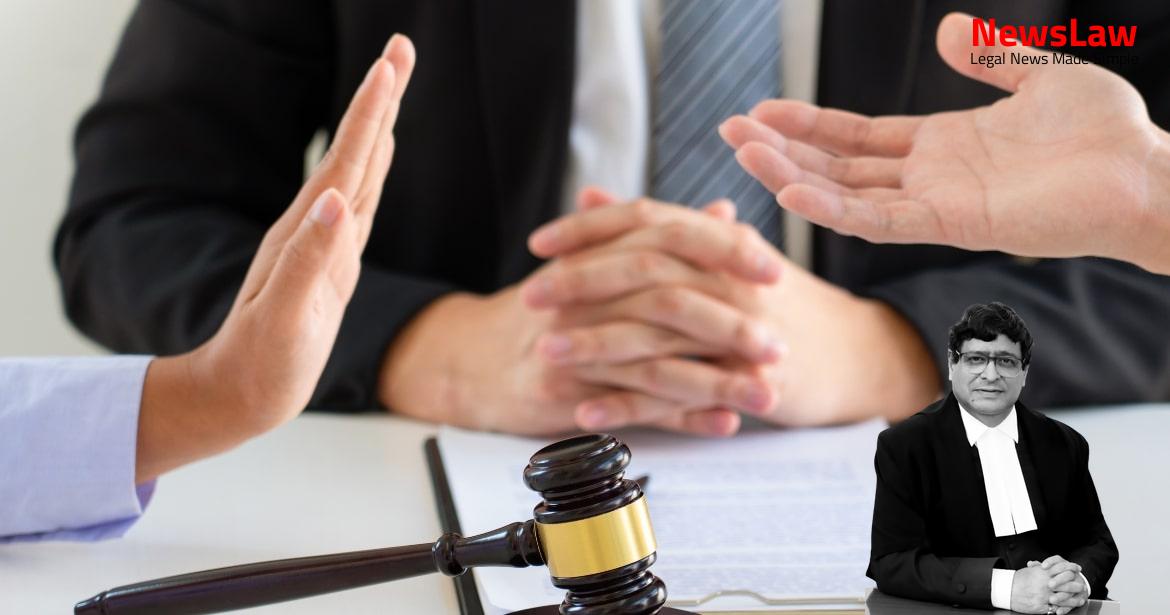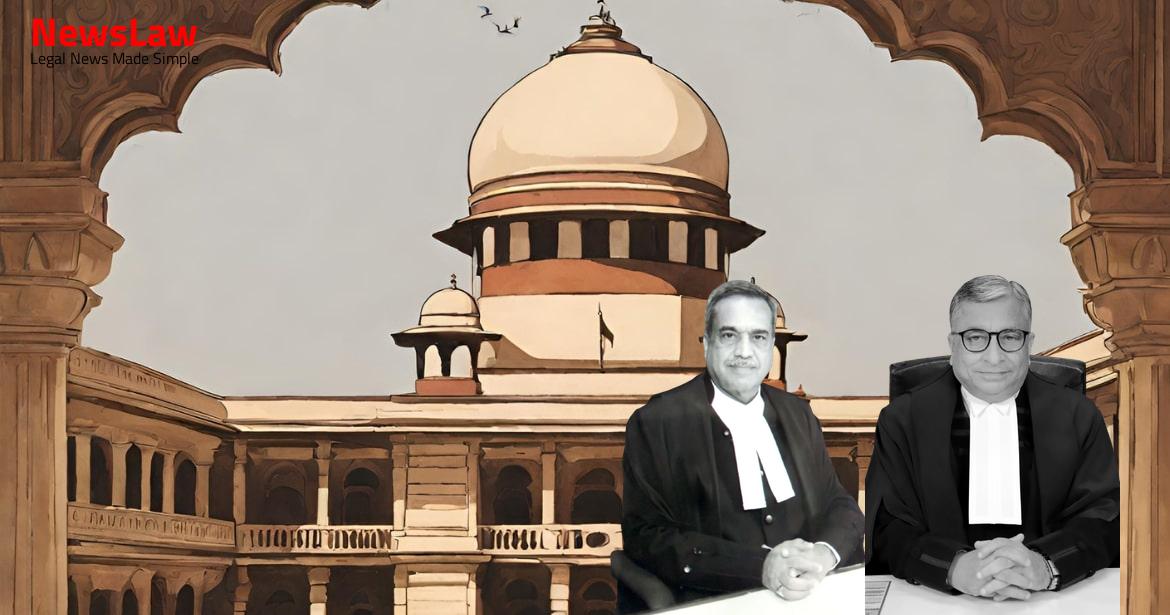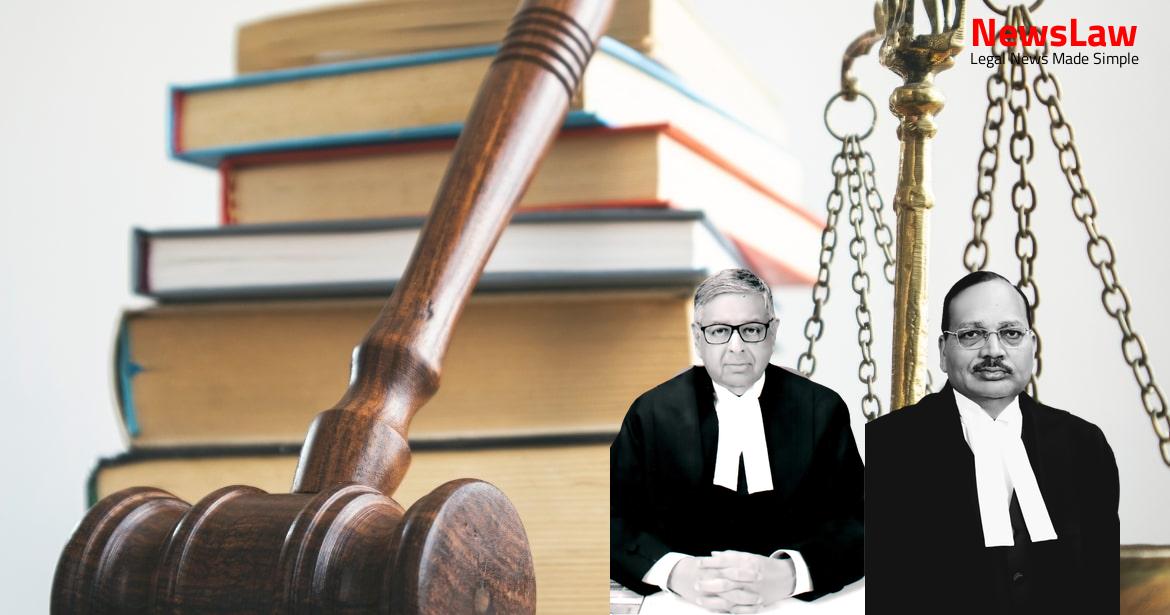The court delved into the intricacies of Section 195(1)(b)(i) in a recent case involving fabricated evidence during an investigation. The analysis focused on the necessity for a direct or reasonably close nexus between the offense and the court proceedings to trigger the provision. This examination sheds light on the complexities of legal interpretations in cases involving falsified documentation and its implications on judicial processes.
Facts
- During the search at the Appellant’s residence, a large sum of money, jewelry, and property papers were seized.
- Accused Nos. 2 and 3 claimed in a letter to the Superintendent of Police that the seized currency was part of an advance payment for purchasing properties.
- Investigation revealed discrepancies in the claimed value of the properties in question.
- Accused No. 2 produced a duplicate sale deed and financial records to support their claim, but the Appellant did not present these at the time of the initial search.
- The stamp vendor through whom the sale deed was issued had a canceled license, raising suspicions of fabrication.
- The Respondent agency alleged a conspiracy to fabricate false documents to evade legal action in a disproportionate assets case.
- Charges were framed against the Appellant and Accused Nos. 2-4 under various sections of the IPC and PC Act.
- Accused No. 4 passed away during the trial proceedings.
- The case against the Appellant originated from a disproportionate assets investigation following a raid on his residence.
- Accused Nos. 2 and 3 convicted under Sections 120B and 193 of IPC, sentenced to one year RI and fine of Rs 1 lakh each.
- High Court held that procedure under Section 195(1)(b)(i) is mandatory only for offences directly affecting administration of justice.
- High Court confirmed Trial Court’s finding of Accused conspiring to fabricate false evidence.
- Sentences of Accused reduced considering advanced age and passage of time.
- Trial Court found the Accused guilty under PC Act and sentenced him to two years RI and fine of Rs 1.5 lakhs.
Also Read: Interpretation of Insurance Policy Provisions in Liability Determination
Arguments
- The Appellants argue that Section 195(1)(b)(i), CrPC should not be considered analogous to Section 195(1)(b)(ii) and therefore the ruling in Iqbal Singh Marwah case does not apply.
- Reference is made to the case of Surjit Singh v. Balbir Singh where the Appellants were accused of fabricating an agreement and forging signatures. The criminal complaint was filed before the civil suit where the forged agreement was produced.
- The Appellants claim that as victims of forgery, they should not be left without a remedy, especially for acts of forgery committed before being used as evidence in court proceedings. They argue that a private complaint should be maintainable in such cases.
- Bandekar Brothers Pvt. Ltd. and Another v. Prasad Vassudev Keni and Others, AIR 2020 SC 4247 was relied upon by the Respondent.
- Absolute bar against taking cognizance for offenses specified under Section 195(1)(b)(i), CrPC except upon written complaint by the concerned Court.
- No cognizance can be taken for offenses relating to giving false evidence under Section 193, IPC unless upon written complaint by the concerned Court.
- Prosecution lodged by the Respondent agency against the Accused under Section 193, IPC is considered unsustainable.
- Arguments by the Additional Solicitor General for the Respondent in favor of the application of the principles in Iqbal Singh Marwah to Section 195(1)(b)(i) of the CrPC.
- Distinguishing Bandekar Brothers and other decisions relied upon by the counsel for the Appellants/Accused by stating they are specific to those cases and not applicable in the present case.
Analysis
- Section 195(1)(b)(i), CrPC restricts the right to make a complaint to public servants or the relevant court for certain offenses
- Offenses committed during the course of investigation may not fall under the purview of Section 195(1)(b)(i)
- The offense must have a direct correlation to the proceedings before a court of justice to require a court to make a complaint
- Investigation under the PC Act is a stage of a judicial proceeding but may not be considered a proceeding before the court under Section 195(1)(b)(i)
- Fabrication of evidence before an investigating authority under a penal statute may not automatically trigger Section 195(1)(b)(i)
- The investigating agency has the right to proceed against the accused for obstructing a transparent criminal probe
- The bar under Section 195(1)(b)(i) should not protect individuals accused of giving false evidence during investigation before court proceedings
- The requirement of a finding as to the expediency is understandable in case of an offence alleged to have been committed either in or in relation to a proceeding in that court in case of offences specified in clause (b) of the old Code.
- A strict interpretation must be applied to provisions curbing the general jurisdiction of the court, unless the context requires otherwise.
- The court considered it expedient to start prosecutions on proper grounds as contemplated by the relevant section, highlighting the close nexus between the offence and the proceeding.
- The purpose of Sections 195(1)(b) and (c) and Section 476 are to control frivolous or vexatious prosecutions inspired by a desire to harass opponents, as these offences have a direct impact on the judicial process.
- A provision curbing the general jurisdiction of the court must normally receive a strict interpretation to avoid unsavoury consequences.
- The offence must have a direct or reasonably close nexus with the court proceedings to fall under Section 195(1)(b) of the CrPC.
- Section 192 of the IPC deals with fabricating false evidence with the intention of influencing a judicial proceeding.
- Section 195(1)(b)(i) and Section 195(1)(b)(ii) outline the types of offences against public justice that can be reported by the Court.
- Section 340 of the CrPC lays down the procedure for recording a complaint under Section 195(1)(b).
- A reference to a larger Bench has been made regarding the need for a preliminary inquiry before making a complaint under Section 195.
- Section 190 grants magistrates the power to take cognizance of offences, which is restricted by Section 195.
- Section 193 deals with the punishment for false evidence in judicial proceedings.
- The case in question involves allegations of creating false evidence and giving false explanation during investigation.
- The key question is whether an offence under Section 193 of the IPC, committed during investigation, relates to a proceeding in court under Section 195.
- The interpretation of ‘stage of a judicial proceeding’ under Explanation 2 to Section 193 is examined in relation to ‘proceeding in any court’ under Section 195(1)(b)(i).
- The High Court reduced the sentences of the Appellants/accused due to their advanced age and the delay in the trial process.
- No further benefit can be granted to the Appellants/accused given the seriousness of the offence.
- The Appellants/accused engaged in an elaborate conspiracy to create a false escrow transaction to protect one of the accused from prosecution.
Decision
- The appeals have been dismissed both on law and on merits.
- Any fine deposited before this Court is to be released by the Registry expeditiously.
- Appellants are directed to surrender within two weeks if not already in custody for serving out the rest of their sentence.
- Prosecution by the investigating agency for an offense punishable under Section 193, IPC, committed during the investigation stage will not be barred by Section 195(1)(b)(i), CrPC.
- The investigating agency must have lodged a complaint or registered the case under Section 193, IPC before the commencement of proceedings and presentation of evidence before the trial court.
- The sentence awarded by the High Court will be set off against any period of imprisonment already undergone by the Appellants.
- If any arrears of fine remain, the Appellants must pay them within a maximum of four weeks from the date of this order.
Case Title: BHIMA RAZU PRASAD Vs. STATE REP. BY DEPUTY SUPERINTENDENT OF POLICE (2021 INSC 180)
Case Number: Crl.A. No.-000305-000305 / 2021



